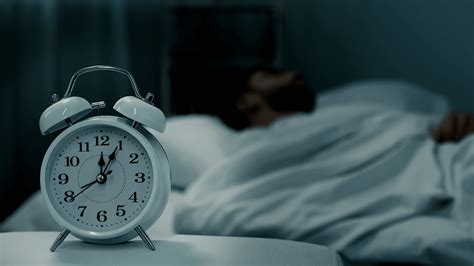Optimize sleep for men: what evening habits enhance recovery & performance?

For men, quality sleep isn’t just about feeling rested; it’s a cornerstone of physical recovery, mental acuity, hormonal balance, and peak daily performance. Yet, in our fast-paced world, sleep often takes a backseat. The good news is that optimizing your sleep doesn’t require drastic changes, but rather a set of intentional evening habits that signal to your body it’s time to wind down and prepare for restorative rest.
Establish a Consistent Sleep-Wake Schedule
One of the most powerful tools for improving sleep is maintaining a consistent sleep schedule, even on weekends. Going to bed and waking up around the same time every day helps regulate your body’s natural circadian rhythm, making it easier to fall asleep and wake up feeling refreshed. Irregular sleep patterns, often referred to as ‘social jet lag,’ can disrupt this rhythm, leading to poorer sleep quality and daytime fatigue.
Aim for 7-9 hours of sleep per night. Experiment to find your personal sweet spot, and then stick to it. Consistency trains your body to expect sleep at a certain time, optimizing its natural processes for rest and repair.

Optimize Evening Nutrition and Hydration
What you consume in the hours leading up to bedtime significantly impacts your sleep. Heavy, fatty, or spicy meals close to sleep can trigger indigestion, acid reflux, and discomfort, making it hard to fall asleep and stay asleep. Aim to finish your last substantial meal at least 2-3 hours before bed.
Caffeine and alcohol are notorious sleep disruptors. While alcohol might initially make you feel drowsy, it fragments sleep later in the night, reducing its restorative quality. Caffeine, a stimulant, has a half-life of several hours, meaning effects can linger long after your last cup. Cut off caffeine intake by early afternoon and limit alcohol consumption, especially in the evening.
Stay hydrated throughout the day, but reduce fluid intake an hour or two before bed to minimize nighttime bathroom trips that interrupt sleep.
Craft a Relaxing Wind-Down Routine
Your brain needs time to transition from the day’s activities to sleep. Engaging in a relaxing wind-down routine signals to your body that it’s time to prepare for rest. This means stepping away from stimulating activities like intense work, vigorous exercise, or stressful discussions at least an hour before bed.
Crucially, minimize exposure to blue light from screens (phones, tablets, computers, TVs). Blue light suppresses melatonin production, the hormone that regulates sleep. Consider using blue light filtering glasses or activating ‘night mode’ on your devices if you must use them, but ideally, avoid screens altogether. Instead, opt for activities like reading a physical book, listening to calming music, journaling, light stretching, or taking a warm bath or shower. These activities help quiet the mind and relax the body.

Create the Ideal Sleep Environment
Your bedroom should be a sanctuary for sleep. Optimize it for darkness, coolness, and quiet. Even small amounts of light can disrupt melatonin production. Use blackout curtains or an eye mask to ensure complete darkness. Turn off or cover any glowing electronics.
Most experts recommend a bedroom temperature between 60-67°F (15-19°C) for optimal sleep. A cooler room helps lower your core body temperature, which is a key part of the sleep initiation process. Finally, minimize noise. Use earplugs, a white noise machine, or a fan to block out disruptive sounds.

Strategic Exercise Timing
Regular exercise is excellent for sleep, but timing is key. Intense workouts too close to bedtime can elevate your core body temperature and heart rate, making it harder to fall asleep. Aim to finish vigorous exercise at least 3-4 hours before you plan to sleep. Morning or early afternoon workouts are generally ideal for promoting better nighttime sleep.
If you prefer evening activity, opt for lighter exercises like a gentle walk, stretching, or yoga, which can promote relaxation rather than stimulation.

Prioritize Your Rest, Elevate Your Life
Optimizing sleep for men isn’t a luxury; it’s a fundamental investment in health, recovery, and performance across all aspects of life. By consciously integrating these evening habits into your routine – a consistent schedule, mindful nutrition, a relaxing wind-down, an optimized sleep environment, and strategic exercise timing – you’ll create a powerful foundation for restorative sleep. Embrace these changes, and you’ll not only wake up feeling more refreshed but also experience enhanced physical resilience, sharper mental clarity, and improved overall well-being and productivity.









